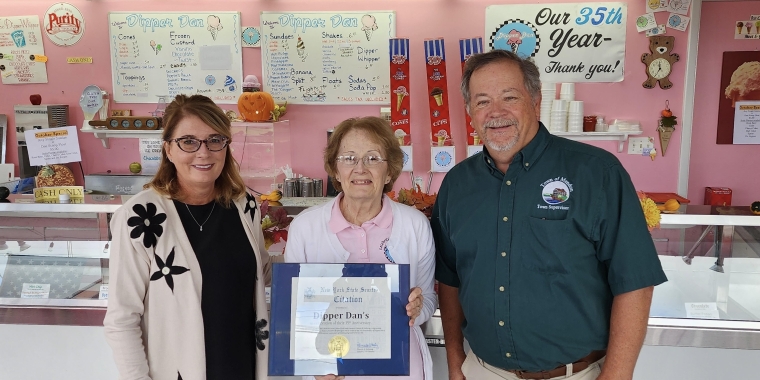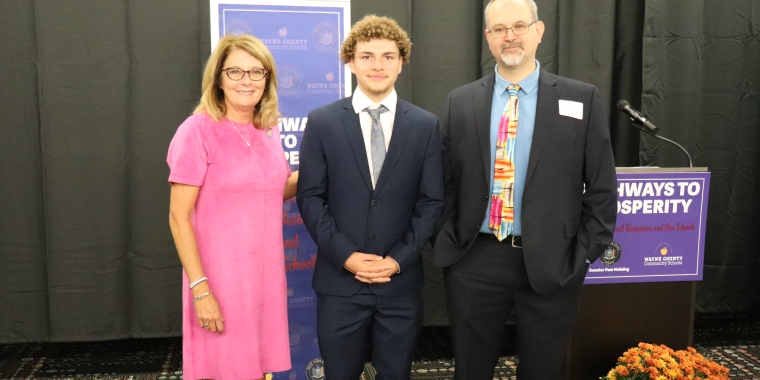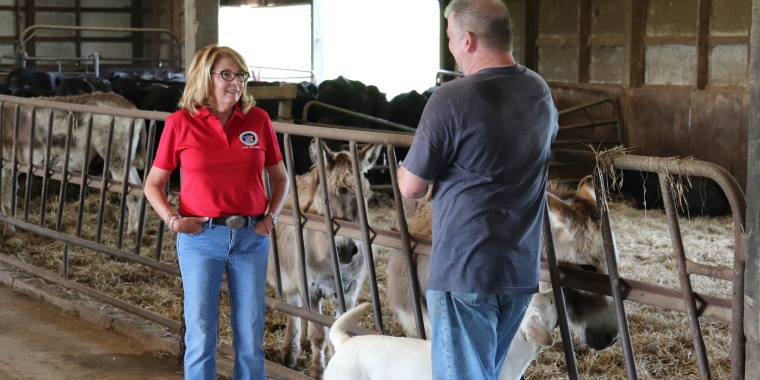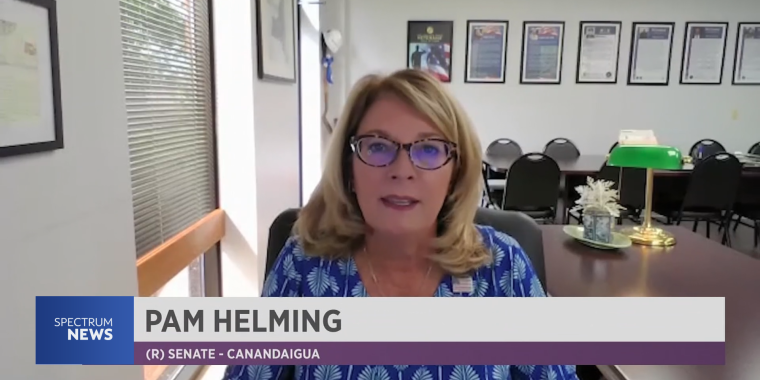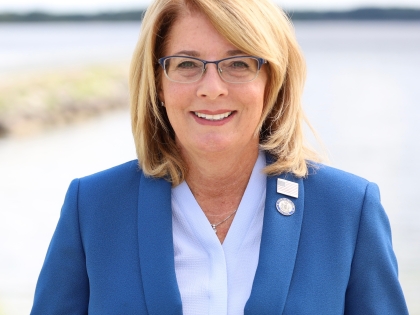
SENATOR HELMING AND HEROIN TASK FORCE PROPOSE LARGEST EVER STATE COMMITMENT TO PREVENT HEROIN AND OPIOID ABUSE
Aron Ashrafioun - 518-455-2366
March 15, 2018
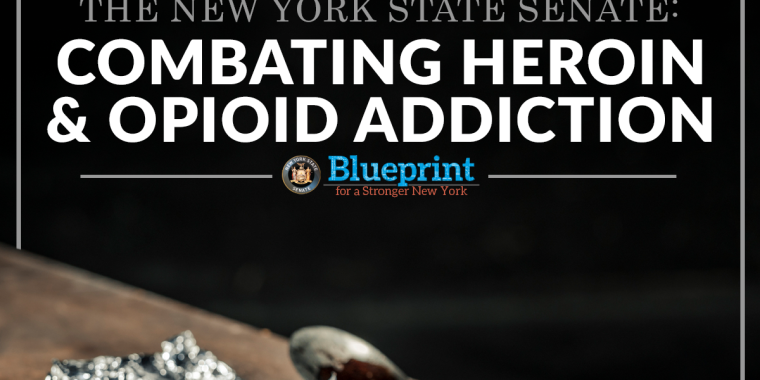
ALBANY, NY – Senator Pam Helming and her colleagues on the Senate’s Joint Task Force on Heroin and Opioid Addiction today unveiled details of their extensive response to the challenges facing communities in the fight against opioids and heroin. As part of the Senate’s 2018-19 Senate One-House Budget taken up yesterday, the Senate Majority Conference commits to providing a record level of state funding to combat opioid abuse.
“The heroin crisis has affected people everywhere, regardless of age, race, gender, or socioeconomic status. It’s an issue that has devastated communities in the Wayne-Finger Lakes region. Not a week passes where we don’t hear of another heroin-related overdose or death. There are no easy answers or quick fixes to solving this heartbreaking epidemic. That is why today, I am proud to join my colleagues on the Senate’s Joint Task Force on Heroin and Opioid Addiction to unveil our plan to help combat addiction. This record funding will provide important support for prevention, treatment, recovery and enforcement efforts. These measures will help save lives, protect our children, and families,” said Senator Pam Helming.
The Senate proposal increases the state’s support for opioid use disorder-related services to a new record of $265 million - going beyond the 2018-19 Executive Budget proposal of $228 million.
In addition, the Senate will propose measures to reduce exposure to opioids for children and adults; limit and provide alternatives to opioid use; better define controlled substances to include deadly drugs like fentanyl; screen expectant mothers to prevent and treat addiction in infants; encourage the successful recovery for those struggling with addiction; and provide law enforcement with new tools to help get drugs and dealers off the streets. They include:
Supporting Prevention
· Enact the Drug Take Back Act to get unused and unneeded medications out of medicine cabinets.
· Ensure labels on opioid prescriptions warn of the highly addictive potential of controlled substance medications.
· Reform prescribing practices to:
o Limit initial prescriptions from a seven-day to a three-day supply;
o Require patients prescribed opioids for thirty-days or longer to have a pain management plan with their prescriber;
o Require written consent from parents or guardians for the prescription of opioids to minors;
o Require the Department of Health to develop guidance on the administration of opioid antagonists; and
o Establish a demonstration program to reduce opioid prescribing by utilizing emergency department physician collaboration to control pain through alternative means, including non-opioid medications.
Expanding Treatment
· Authorize the Office of Alcoholism and Substance Abuse (OASAS) to provide funding to substance use disorder programs operated by for-profit agencies.
· Establish a jail-based substance use disorder treatment program.
· Require testing of newborns for Neonatal Abstinence Syndrome.
· Establish a program on screening expectant mothers for opioid addiction and linking them with care.
· Establish a workgroup and provide education for healthcare providers on screening and caring for mothers with an opioid addiction.
· Prohibit prior authorization for outpatient substance abuse treatment.
· Establish an OASAS ombudsman to assist consumers and providers with insurance issues, including network adequacy.
· Require hospitals and Emergency Room physicians to notify a patient’s prescriber that the patient has been treated for a controlled substance overdose.
Encouraging Recovery
· Establish a voluntary certification process for sober homes.
· Codify the Peer Engagement Program, connecting individuals with substance use disorders to treatment and recovery services.
· Establish an infant recovery pilot program with at least four infant recovery centers in areas of need for infants suffering from drug withdrawal resulting from in utero exposure.
· Establish the Family Support and Recovery Services Program to provide recovery services and support to individuals exiting treatment and their families for up to 12 months after leaving a treatment program.
Enhancing Enforcement
· Criminalize the sale of a controlled substance on the grounds of a drug or alcohol treatment center, or within 1,000 feet of such facilities.
· Make it a crime to offer or accept any kickback from an individual or entity that provides substance abuse services in exchange for patient referral and admission.
· Establishes appropriate level penalties as it relates to heroin sales.
· Makes the sale of 2 milligrams or more of Carfentanil a Class A-II felony and the sale of 10 milligrams or more of Carfentanil a Class A-I felony.
· Update controlled substances penalties to reflect emerging issues.
Addressing Fentanyl and other Synthetic Drugs
· Update the controlled substances schedule to promote consistency with the federal controlled substances schedules.
· Add new derivatives of fentanyl to the controlled substances schedule.
· Increase the criminal penalties for the sale of an opiate containing a fentanyl derivative.
The Senate will take action on these measures on Wednesday, March 14, and continue to make addressing heroin and opioid abuse a priority during ongoing budget negotiations.
Senator Helming represents the 54th Senate District, which consists of Seneca and Wayne Counties, parts of Cayuga and Ontario Counties, and the towns of Lansing and Webster. For more information, please visit Senator Helming’s website, or follow @SenatorHelming on Facebook or Twitter.
###
